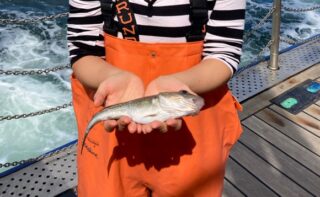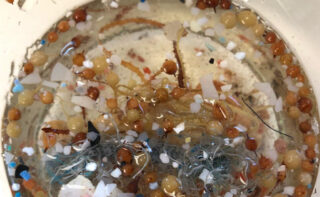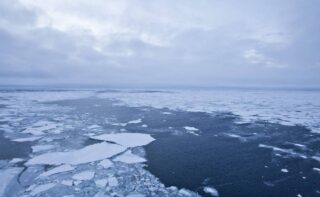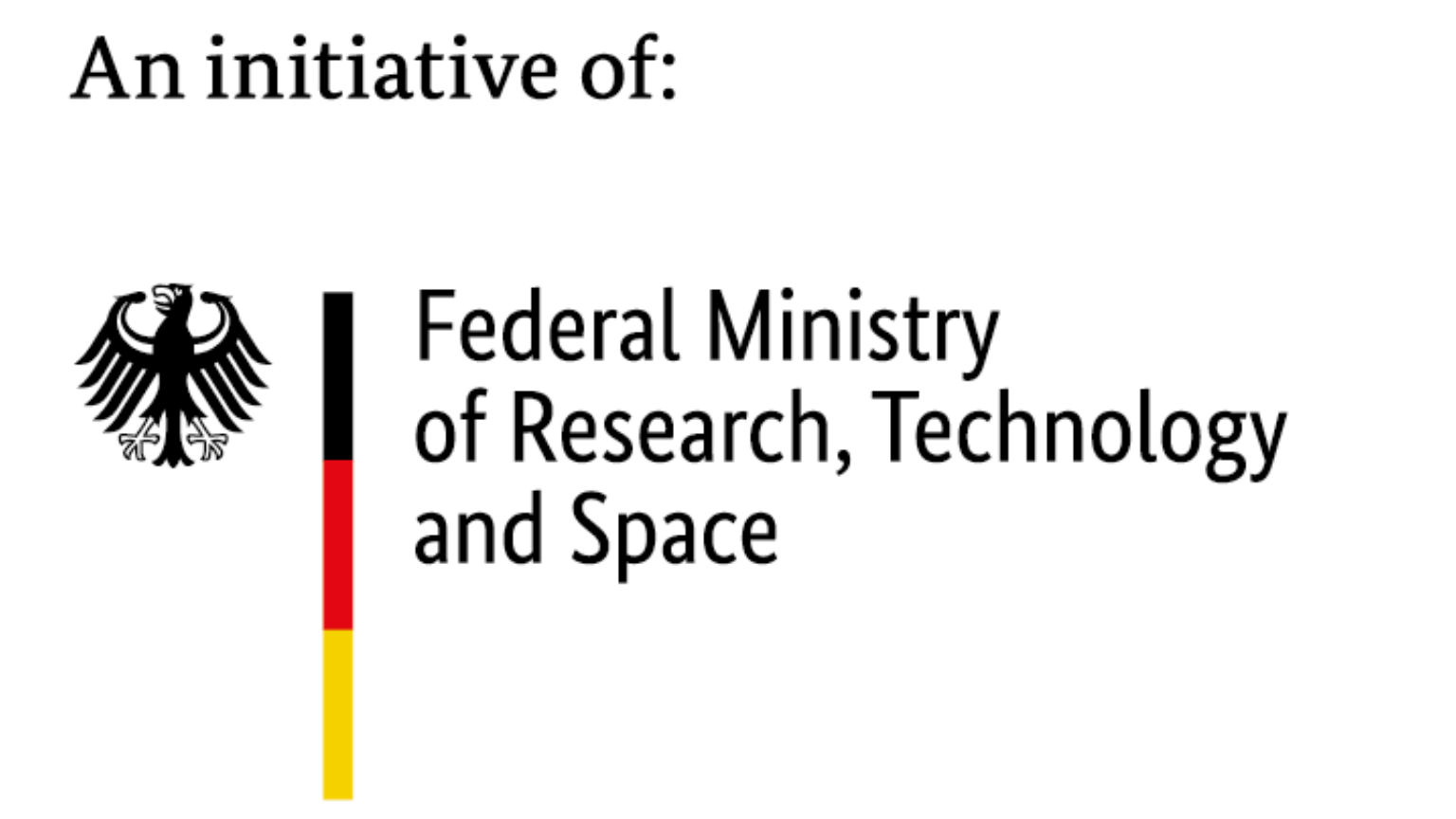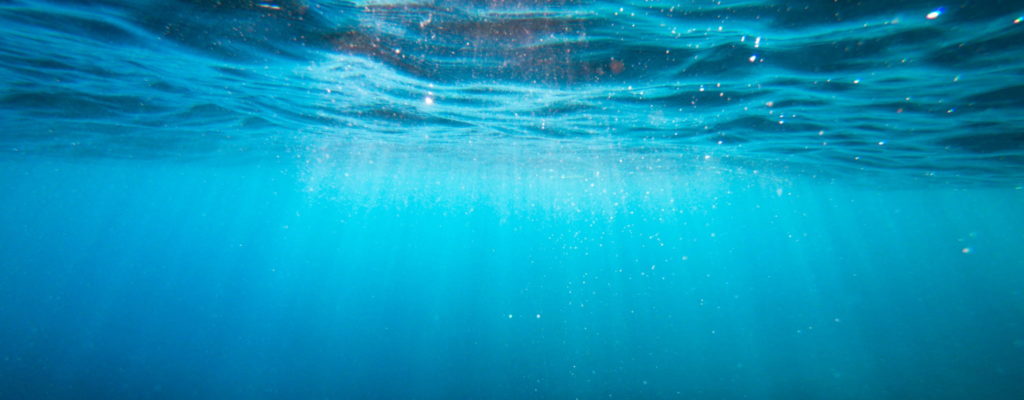
Oceans are vital for survival – marine research is precautionary research!
Statement by the Board of the German Alliance for Marine Research on the Report of Working Group II of the Intergovernmental Panel on Climate Change (IPCC)
Warming, acidification, overfishing, loss of species: On the occasion of the report of Working Group II of the Intergovernmental Panel on Climate Change (IPCC) published today, the Board of the German Alliance for Marine Research (DAM) emphasises the urgency of advancing the sustainable management of the ocean – based on the results of scientific research.
“The report of Working Group II of the Intergovernmental Panel on Climate Change once again clearly demonstrates that our lifestyle is already having drastic effects on the livelihoods of humankind around the globe. The report shows what consequences for our lives we will have to prepare for in the future. But it also shows that we still have the power to shape our future on this planet. The sustainable management of the ocean in terms of its protection and use plays a key role in this”, concludes the DAM Board.
Climate change directly threatens the ocean, which covers about 70 per cent of the Earth’s surface, through warming, acidification, loss of oxygen, loss of biodiversity, changes in habitats and biotic communities – and thus its important climate-regulating function or many functions important for our existence on this planet. In order to discuss measures for the protection of the oceans and to launch initiatives, marine experts and politicians from 42 countries met at the international ocean summit “One Ocean Summit” in Brest, France, at the beginning of February – among them Katja Matthes, Director of GEOMAR Helmholtz Centre for Ocean Research Kiel and member of the DAM Board. “Oceans are vital for survival: for millions of species whose habitat they are, as well as for us humans,” says Matthes.
Connected by currents, the ocean forms the largest interconnected ecosystem in the world. In addition to its climate-regulating function, it is the basis of life for a growing world population and provides food, resources, transport routes and jobs. “By protecting the ocean and the life in it, we preserve its important functions for our well-being on this planet or make them available for targeted and sustainable use – an enormous task in which all levels of society must act together: Politics, business, science and civil society. To achieve this goal, DAM is participating as a network partner in the United Nations Decade of Ocean Research for Sustainable Development (2021 to 2030). “The UN Decade of Oceans is a global campaign with the goal of jointly shaping the ocean we need for the future: healthy, full of life, with protected areas – but also a sustainably used economic space for our everyday lives. Findings from research are a central building block for this,” explains Martin Visbeck, Head of Physical Oceanography at GEOMAR and DAM representative for the UN Decade.
Scientific research as a basis for orientation and decision-making
For the sustainable management of the ocean, German marine research, which occupies a leading position internationally, can provide solution-oriented knowledge for action: both for adaptation to climate change and for mitigating its consequences. The members of the DAM – 22 leading German marine research institutions – study the changes to ecosystems caused by humans and the role of the ocean in climate change, as well as its social and cultural consequences and modern forms of use of the oceans. In 2021, DAM launched two research missions on the role of the ocean in climate change, each involving around 200 scientists: The mission “Marine Carbon Storage as a Pathway to Decarbonisation”, in which the participating scientists will address the question of how the climate-regulating effect of the ocean can be strengthened in the future, and the mission “Protection and Sustainable Use of Marine Spaces”, which will look at the effects of use and pollution in the German North Sea and Baltic Sea and develop options for protection and use concepts. A total of 13 interdisciplinary research networks with scientists from around 40 institutions plus stakeholders are involved in the two DAM research missions.
***
The German Alliance for Marine Research (DAM) connects 22 leading German marine research institutions with the aim of strengthening the sustainable use of coasts, seas and the ocean through research, transfer, data management and digitalisation as well as infrastructures. To this end, DAM and its member institutions develop solution-oriented knowledge and communicate options for action in politics, business and civil society. It is funded by the federal government and the northern German states of Bremen, Hamburg, Mecklenburg-Western Pomerania, Lower Saxony and Schleswig-Holstein.
In addition to Professor Katja Matthes, Director of GEOMAR Helmholtz Centre for Ocean Research Kiel, the DAM Board includes Professor Ulrich Bathmann, Director of the Leibniz Institute for Baltic Sea Research Warnemünde (IOW), Professor Michael Schulz, Director of the MARUM Centre for Marine Environmental Sciences and Professor Michael Bruno Klein as Chairman.
_ _ _
Contact for queries:
Marion Jüstel
Communication
German Alliance for Marine Research (DAM)
Tel +49 (0)30 235 96 27 13
email: presse@allianz-meeresforschung.de
Newsletter
Always up to date with the DAM newsletter. (German only)
